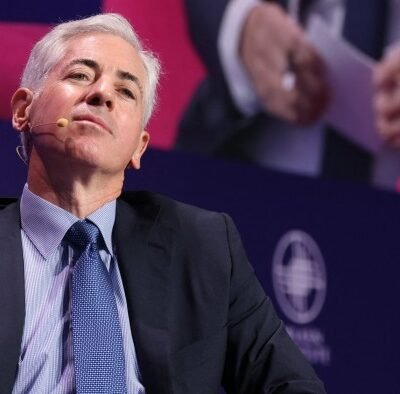The Vietnam Innovation and Private Capital Summit 2025 is set to take place on April 22, focused on unlocking private capital. The event will explore strategies for business expansion, successful fundraising, and boosting initial public offerings, mergers and acquisitions, and exit opportunities.
 |
| Long-term capital unlocked through investment funds, photo Photo: Shutterstock |
More than 200 global investment funds and financial institutions are expected to join, including notable names such as CDH Investments, Partech Ventures, Temasek, Do Ventures, Golden Gate Ventures, VinaCapital, and Mekong Capital.
Addressing concerns about the impact of the global trade war on foreign investment inflows, Vinnie Lauria, founder of Golden Gate Ventures, expressed optimism, stating that Vietnam is not only a market to watch but a place worthy of long-term commitment.
“We have allocated one-third of Golden Gate Ventures’ Southeast Asia fund specifically for Vietnam, a decision grounded not only in research but also in deep conviction,” Lauria said. “Capital flows into Vietnam’s technology and innovation sectors are unlikely to be significantly affected. In fact, under current conditions, Vietnam may benefit, with projections that up to 1,000 Vietnamese startups could emerge.”
He also noted that while the US may impose tariffs on countries with large trade deficits, such policies are likely to be short-term and localised, with limited long-term impact on decisions.
“To realise the goal of attracting $35 billion into innovation by 2035, I recommend three key reforms: allow Vietnamese citizens to own shares in foreign companies, particularly tech firms; streamline visa issuance for foreign experts working in Vietnam; and improve airport entry procedures,” he added.
According to the 2025 Southeast Asia Private Equity Report released by Bain & Company on April 11, Vietnam recorded the most significant improvement in per capita education spending among emerging Southeast Asian markets between 2018 and 2023.
“This reflects growing interest in education among the Vietnamese population and could be a positive signal for the potential development of Vietnam’s private education market and related services,” the report said.
The report also highlighted Vietnam’s expanding diaspora and growing role as a tech outsourcing hub, which in turn is fuelling increased demand for English-language schools.
“Vietnam’s robust tech startup ecosystem positions it as an attractive destination for private equity investments in the education sector, especially in English-language training centres and edtech firms that leverage the country’s burgeoning tech landscape,” it noted. “Financial services and fintech remain among the most active sectors, reflecting the significant growth potential of Southeast Asia’s digital financial market. Likewise, the expansion of renewable energy investment aligns with global sustainability trends and presents opportunities in this sector.”
Data released at the end of March by the Ministry of Finance (MoF) during an investment fund forum showed that 2024 was a successful year for Vietnam’s capital markets, with total capital raised reaching approximately $37.2 billion, a 30 per cent increase over the previous year, accounting for 25 per cent of total social investment.
Foreign investors opened nearly 48,000 accounts and executed trades worth around $44 billion, with foreign institutional investors comprising 20.7 per cent of total institutional investors.
To pull in more foreign investment into Vietnam’s capital market, Vu Thi Chan Phuong, chairwoman of the State Securities Commission (SSC) said at the event that the SSC was continuing efforts to improve access to information for foreign investors, simplify administrative procedures, and develop a central counterparty clearing mechanism.
“The SSC has proposed that relevant agencies expand fund certificate distribution channels, enhancing product accessibility, especially for retail investors, and implement appropriate tax policies to encourage public participation in fund investments,” she said.
Referring to international investors and institutions, Simon Williams, head of Government Affairs and Public Policy at BlackRock, stressed that Vietnam must listen to the feedback of foreign investors and focus on engaging key stakeholders through strategic information-sharing.
“It’s not that Vietnam isn’t attractive, it’s just that there are many competing priorities globally. At present, the Vietnamese market is not yet a top priority for many financial institutions,” he said.
Williams noted that in addition to attracting long-term investors, Vietnam must also facilitate the participation of hedge funds, custodial banks, and liquidity providers to create a balanced and sustainable financial ecosystem.
“I recommend that the MoF and SSC establish a clear strategy for engaging strategic investors and holding regular policy dialogues with key stakeholders. Mobilising capital through the markets for sustainable growth demands both urgency and long-term coordination among government, businesses, and investors,” he added.
Le Anh Tuan, chief investment officer of Dragon Capital, stressed the need for nationwide financial education, preferential tax policies, diversified investment products, and effective capital flow management, including digital assets.
“When implemented together, these measures can create a transparent, stable financial market that attracts both local and international investors. Financial education should not rely solely on a few institutions, it needs a dedicated agency to lead the effort,” he said.
Tuan also noted that while Vietnam has yet to officially recognise cryptocurrency, the Vietnam Blockchain Association estimates that Vietnamese individuals and businesses may hold over $100 billion in total in digital assets.
“This is a vast source of foreign currency that remains untapped. A proper legal framework enabling domestic institutions to offer related financial products could help channel this capital back into the economy instead of letting it flow abroad,” he said.
|
Since the beginning of the year, the performance of nearly all equity funds has turned negative, largely due to a sharp market correction during the first two weeks of April. The VN-Index plummeted by 16.9 per cent from April 3 to April 9 following news of the US’ retaliatory tariffs on Vietnam. The losses appear to be short-term in nature, as the VN-Index has staged a notable rebound, gaining 12.2 per cent over the April 10-15 sessions. According to a fund performance report published by FiinTrade on April 16, as of the market bottom on April 9, at least observed 13 equity funds had seen their year-to-date performance fall sharply, with the worst-hit fund down by as much as 22 per cent. March marked a notable downturn for equity funds, with average returns slipping to a decrease of 2.3 per cent, a complete reversal from the 1.3 per cent gain recorded in February. Out of 69 equity funds tracked, only 17 posted positive returns in March, most of which were foreign ETFs such as Fubon FTSE Vietnam, VanEck Vietnam, and Xtrackers FTSE Vietnam. In Q1, the average return for equity funds stood at negative 1.8 per cent, with only 12 out of 69 funds outperforming the VN-Index benchmark, which rose by 3.2 per cent. Among the top performers were small-sized open-ended funds under $16 million in assets under management and select foreign funds. Balanced funds also experienced a downturn in March, with average returns declining by 1.5 per cent, compared to a 1.3 per cent gain in February. Of the 14 balanced funds monitored, only four recorded positive returns, primarily those with modest net asset values of less than $4 million. Source: FiinTrade and FiinPro-X, FiinGroup |
|
Nguyen Ngoc Anh, CEO SSI Asset Management Establishing a comprehensive legal framework that allows foreign enterprises to list and raise capital in Vietnam, along with developing cross-border financial products, will align Vietnam with international financial standards. This will lay the foundation for the growth of Vietnam’s capital market and asset management industry. It is crucial to remove regulatory barriers that limit investment funds’ deeper participation in the stock market. To accelerate the growth of the fund management industry, preferential tax policies should be designed for long-term investors. These incentives would encourage a long-term investment culture and ensure stable capital flow into the market. Funds should also be given greater access to corporate issuances and investment activities, allowing them to steer capital towards long-term investments and contribute to the economy’s sustainable growth. A key long-term goal is to transform Ho Chi Minh City into a regional financial hub. Achieving this requires improving Vietnam’s sovereign credit rating to pull in foreign capital at lower costs. Additionally, developing a skilled workforce with international expertise is vital. Regulatory reforms to simplify licensing and recognise international qualifications will help engage and retain global talent. Don Lam, founding partner and CEO VinaCapital Vietnam is no longer just an emerging investment destination, it is a dynamic, high-potential economy where success depends on understanding its unique market characteristics. To build a more sustainable market, it is crucial to shift individual investors’ perceptions and encourage them to invest via professional fund managers. This approach mitigates risks and offers the potential for more stable, long-term returns through expert management. The government plays a vital role in shaping a supportive policy and regulatory environment. The SSC and relevant agencies should implement practical measures to help funds operate efficiently, safeguard investor rights, and enhance market transparency. In addition, regulatory bodies should consider policies that encourage the development and diversification of investment funds, including those focused on infrastructure or private enterprises. Creating better conditions for institutional investors will help engage more capital and strengthen the role of professional funds in mobilising long-term resources for economic development. |





